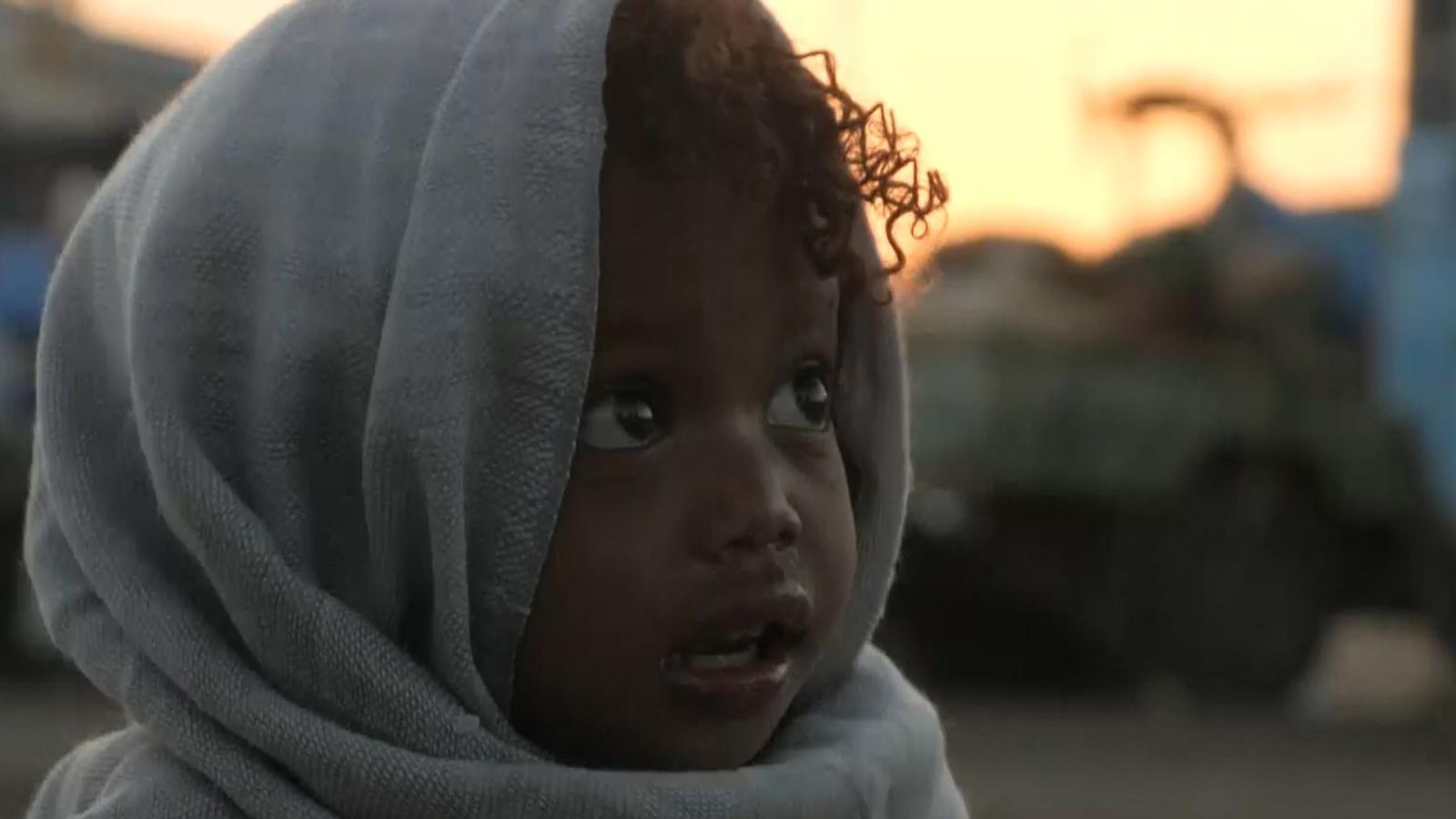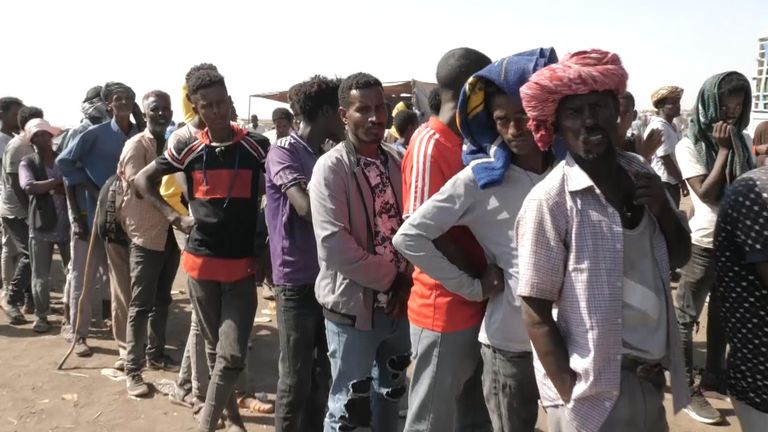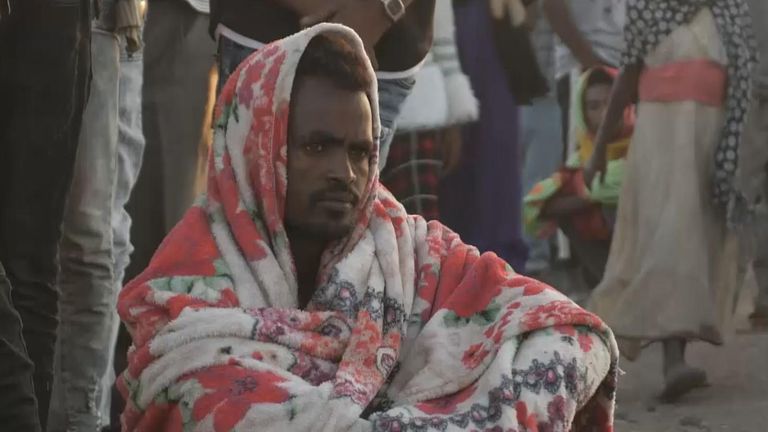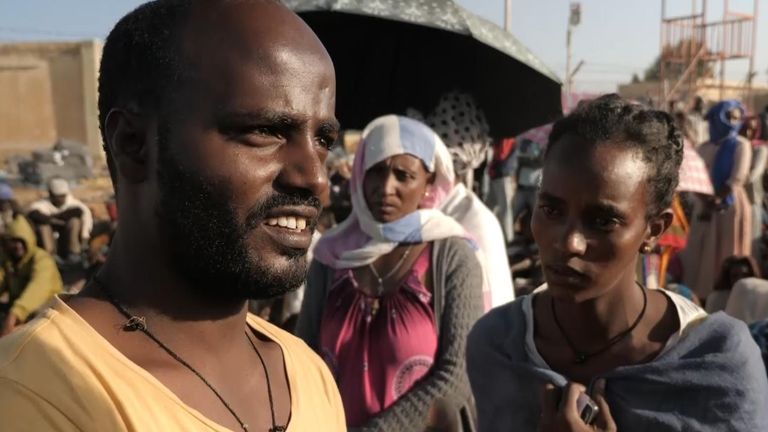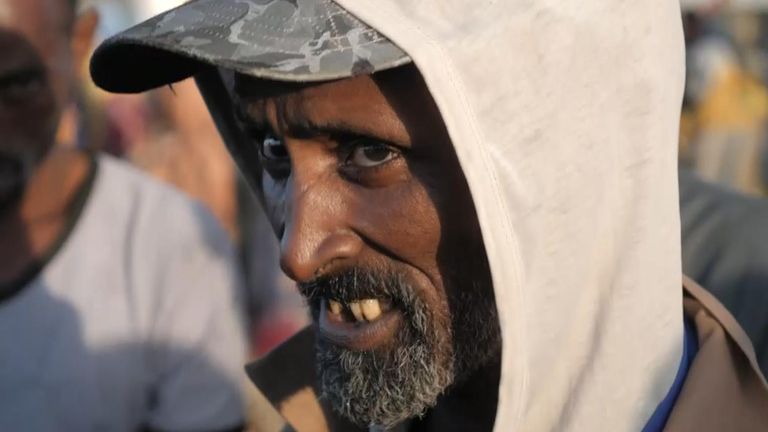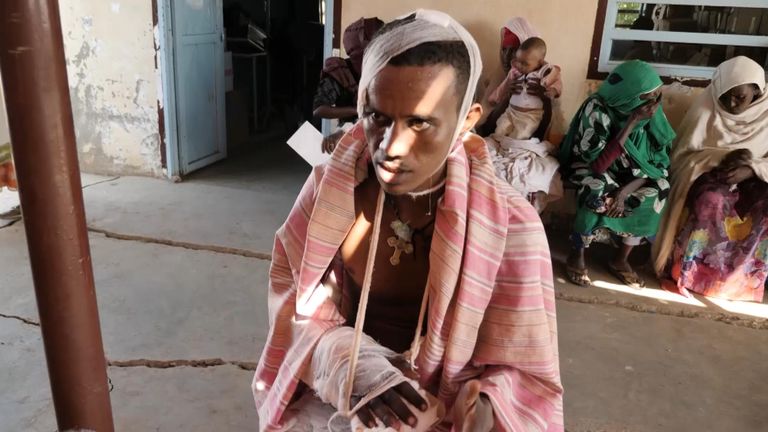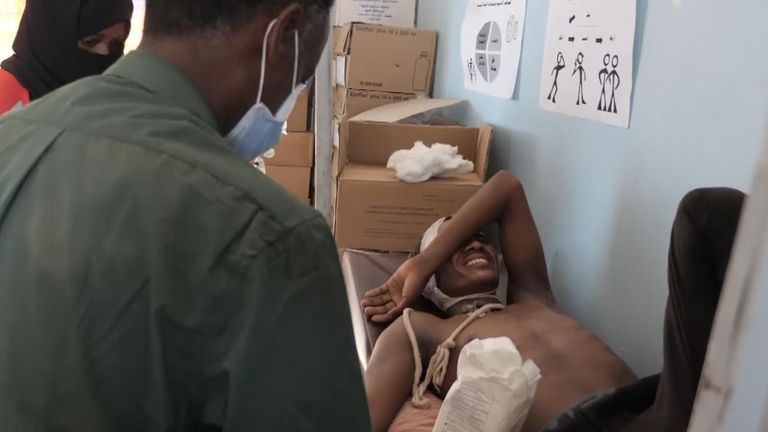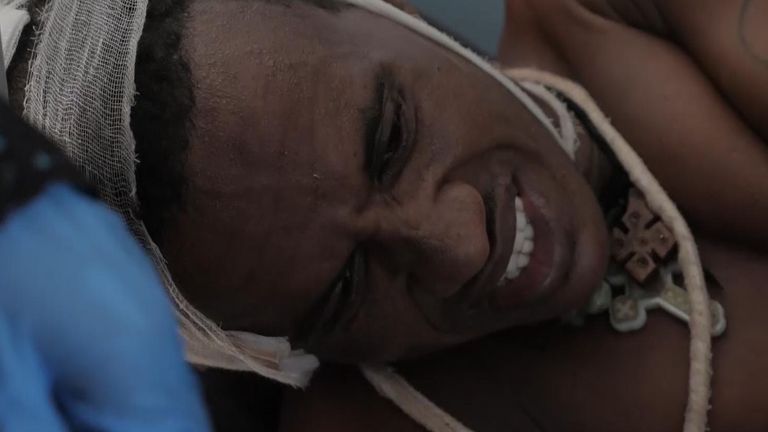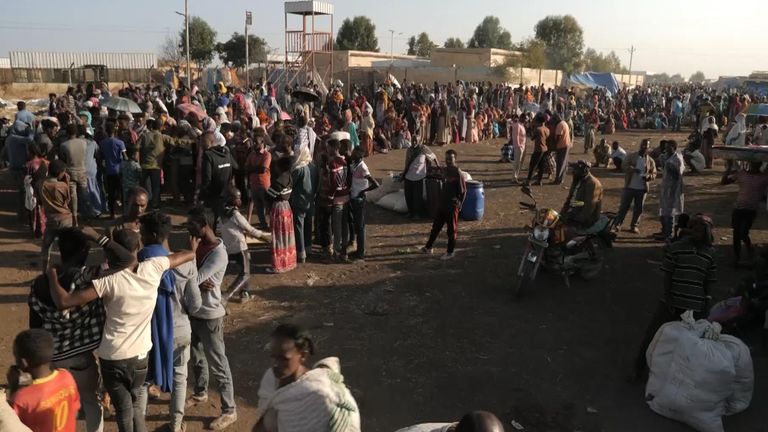There is a civil war in Ethiopia that is being fought largely in the shadows.
The country’s prime minister Abiy Ahmed and his government have imposed a full blackout as they seek to defeat the leadership of the region of Tigray.
The phone lines have been cut and the internet is switched off. The banks are closed and there is no electricity provided to the five million people who live there.
But we found a way to gather testimony in the borderlands with Sudan.
There is a dusty, sun-bleached town on the Sudanese side called Hamdayet were tens of thousands of refugees have been crossing the border.
Many seem dazed and everyone looks exhausted as they gather on a hill overlooking a tributary of the Nile.
“It was a difficult journey, because we are hungry, we don’t have water, food or transport,” said a civil servant called Abedom Teklarmariam.
He said he and his wife Rachel along with their six-month old son had walked for 10 days to get to Hamdayet.
“There is the sunlight, it’s hot, it was so difficult,” he uttered with a singular look of defeat.
The refugees say they have been driven from their homes by bombing and shelling and some have been separated from family members in the chaos.
We found a man called Gabriselese Fasar clutching a tiny photo of his son called Fan who he said was killed as they made their escape.
“We met the armed forces of Ethiopia, Abiy Ahmed’s soldiers and they came and fired three, no, two bullets. One of them hit my son,” he says.
“How old was he,” I asked.
“Twelve,” he said before bursting into tears.
A long-simmering power struggle between the Ethiopian government and the leaders of Tigray state may have triggered this conflict but it is now fuelling deep-rooted tensions in an ethnically divided nation.
At a tiny clinic, run by the Red Crescent Society, we met a Tigrayan who had been attacked by men wielding axes.
Abrahali Manaso said his neighbours tried to kill him by revealing his identity to a militia representing the Amhara ethnic group.
“The group came with axes and they attacked me, then talked about whether they had killed me,” he says.
“One took a look and said he’s alive. His friend said, well, finish him off then.”
Dr Tedros Tefara was given the job of treating the wounds.
We watched the patient squirm as fluids were used to clean gaping cuts on his arm, neck and head. Everyone found this difficult to witness.
“What do injuries like this tell you about the conflict across the border?” I asked.
“Hatred,” the doctor replied. “Extreme hatred. Insanity. Absolute insanity. There is no rational, no human reason to do things like this, to your brother.”
The sleepy town of Hamdayet has been turned into a transit zone and we watched a thousand refugees board buses for a camp the Sudanese are still trying to prepare.
Some were offered face masks to protect against COVID-19 but few took them.
The effects of the pandemic have been relatively mild in Africa and there are other things to worry about in a war zone.
It takes 12 hours to reach this isolated camp called Um Rakuba – last used in the 1980s for the victims of the Ethiopian famine – but the refugees will feel safer at the facility on the fiery plains of Sudan.
Many more are sure to follow. The UN says it is now preparing the arrival of 200,000 people; the victims of a war that could tear Ethiopia apart.
